In today’s global economy, freight forwarding serves as a vital link between manufacturers and consumers, particularly in the complex arena of international trade. As businesses increasingly turn to countries like China for their sourcing needs, understanding the role and benefits of a freight forwarder becomes crucial. A freight forwarder not only facilitates the logistics of shipping goods but also navigates the intricate web of regulations, customs, and documentation necessary for successful transportation. Whether you’re a seasoned importer or new to the shipping landscape, this comprehensive guide provides essential insights into selecting the right freight forwarder, particularly for shipping goods from China to destinations like Angola. By leveraging their expertise, businesses can streamline operations, reduce costs, and mitigate risks associated with international shipping.
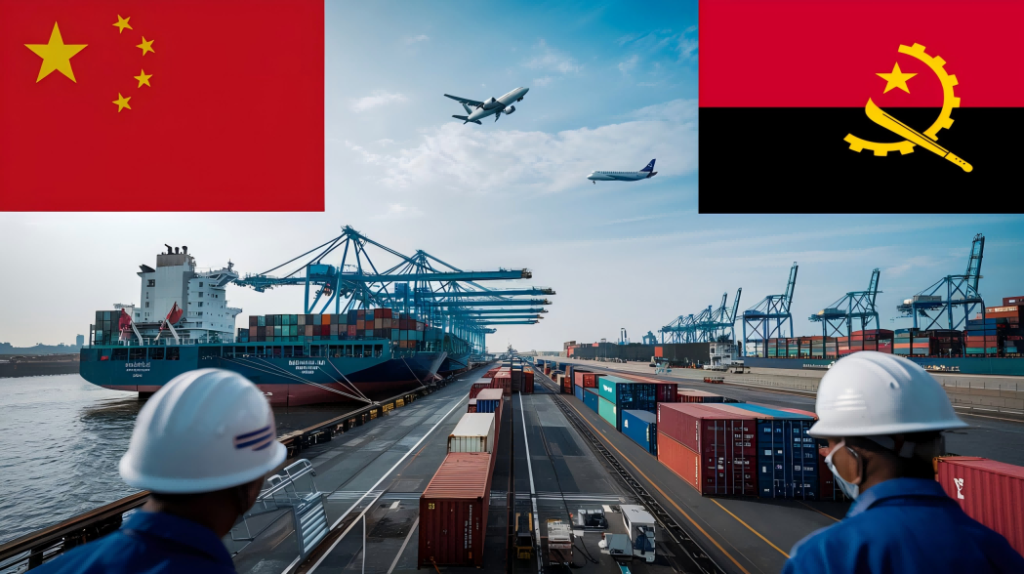
Understanding the Role of a Freight Forwarder
A freight forwarder is an organization or individual that facilitates the shipment of goods from one location to another. They do not typically transport goods themselves but act as intermediaries who utilize various transportation services to coordinate the logistics of moving goods. These services include arranging for transportation via sea, air, or land, as well as managing customs clearance, documentation, and warehousing services. By leveraging their extensive networks and industry expertise, freight forwarders help businesses navigate the complexities of international shipping.
Why Use a Freight Forwarder for Shipping from China to Angola?
Shipping goods from China to Angola involves numerous challenges, including navigating varying regulations, transport routes, and documentation requirements. Here are several compelling reasons to consider utilizing a freight forwarder for this process:
-
Expertise in Local Regulations: A freight forwarder is well-versed in the regulations and customs procedures of both China and Angola. They can ensure compliance, thus avoiding potential delays or penalties.
-
Streamlined Logistics: Managing logistics can be cumbersome, particularly for businesses new to international shipping. Freight forwarders simplify this process by handling all aspects of transportation and documentation.
-
Cost-Effectiveness: By consolidating shipments and negotiating favorable rates with carriers, freight forwarders can provide more competitive pricing options, helping businesses save on shipping costs.
-
Risk Mitigation: A reliable freight forwarder offers insurance and risk management services, safeguarding your shipment against potential losses or damages during transit.
Factors to Consider When Choosing a Freight Forwarder
Selecting the right freight forwarder is crucial for ensuring a smooth shipping process. Here are key factors to evaluate when making your choice:
Legitimacy and Licensing
Confirming the legitimacy of a freight forwarder is essential. Ensure that they hold the appropriate licenses and certifications required in both the shipping country (China) and the destination country (Angola). Regulatory bodies often provide directories of licensed freight forwarders which can serve as a valuable resource.
Experience and Expertise in China and Angola Trade
Assessing the freight forwarder’s experience in international shipping, specifically between China and Angola, is vital. An experienced forwarder will be familiar with the nuances of trade between the two countries, including documentation, customs regulations, and logistics challenges, which can significantly streamline the shipping process.
Range of Services Offered
A comprehensive freight forwarder provides a range of services that accommodate the specific needs of your business. Common services include:
- Customs Clearance: Management of all customs documentation and processes is essential to prevent delays.
- Warehouse Services: Having access to storage facilities can provide flexibility in managing inventory.
- Insurance Services: Protection against cargo loss or damage during transit is critical for risk management.
Competitive Pricing and Transparent Fees
When evaluating freight forwarders, compare their pricing structures. Look for transparency in their fees, including any hidden charges that could inflate the overall cost of shipping. A reputable freight forwarder will provide a detailed breakdown of costs, allowing you to make informed decisions.
Reliable Communication and Customer Service
Effective communication is paramount in freight forwarding. Choose a forwarder that offers reliable customer service and updates throughout the shipping process. This will help ensure that you are informed of your shipment’s status at all times, allowing for timely responses to any concerns that may arise.
Tracking and Monitoring Capabilities
The ability to track shipments in real-time is another critical factor to consider. A forwarder that provides online tracking tools allows you to monitor your cargo’s journey, providing peace of mind and facilitating better inventory management.
Insurance and Risk Management
Given the inherent risks of shipping, a freight forwarder should offer comprehensive insurance services to protect your goods. This includes coverage for potential damages, loss during transit, and other unforeseen events. Understanding the insurance options available can help safeguard your investment.
In choosing a freight forwarder for your shipping needs, particularly for Shipping from China to Angola, ensure you consider these factors thoroughly. A well-chosen partner, such as Dantful International Logistics, can provide a highly professional, cost-effective, and high-quality service tailored to your business needs, ensuring a seamless logistics experience.
You may be interested in the following related articles:
- The Ultimate Guide to Sea Freight from China to Finland
- Freight Forwarder from China to Sweden: What You Need to Know
- Exploring the Benefits of Sea Freight from China to Venezuela
- How to Save Money with a Freight Forwarder from China to Netherlands
- Step-by-Step Guide to Sea Freight From China to Luxembourg
- How to Save Money with a Freight Forwarder from China to Turkmenistan
Strategies for Finding the Right Freight Forwarder
Identifying the most suitable freight forwarder for your business is critical for ensuring efficient and reliable shipping operations. With numerous providers available, employing a strategic approach to finding a trustworthy freight forwarder can facilitate the process significantly. Below are effective strategies to consider when selecting a freight forwarder, especially for shipping from China to Angola.
Referrals and Recommendations from Trusted Sources
One of the most reliable methods of finding a freight forwarder is through referrals from trusted sources. Consult industry peers, business partners, or suppliers who have experience with freight forwarding services. They can provide valuable insights into the performance and reliability of specific freight forwarders. Personal recommendations often carry more weight than general reviews, as they are grounded in firsthand experiences.
Online Research and Comparison of Freight Forwarders
Leverage the power of the internet to research and compare various freight forwarding companies. Utilize search engines and review platforms to gather information about their services, customer feedback, and ratings. Create a list of potential candidates based on your specific shipping needs, such as expertise in customs clearance or ocean freight services. Websites like Google Reviews and Trustpilot can be instrumental in evaluating customer satisfaction.
Attending Trade Shows and Networking Events
Participating in industry-specific trade shows and networking events can provide excellent opportunities to meet freight forwarders face-to-face. These events often feature a range of logistics providers, allowing you to ask questions directly and evaluate their offerings in real-time. Engaging with representatives at these events can also lead to valuable connections and insights into the freight forwarding landscape.
Utilizing Freight Forwarder Directories and Databases
Freight forwarder directories and databases offer a comprehensive listing of logistics providers categorized by service type, region, and specialization. Websites such as FreightNet and the International Federation of Freight Forwarders Associations (FIATA) can serve as valuable resources for finding qualified freight forwarders. These platforms often include important information such as contact details, service offerings, and customer reviews, aiding in your selection process.
Conducting Thorough Background Checks and Due Diligence
Before finalizing your choice of freight forwarder, conduct thorough background checks to ensure their legitimacy and reliability. This step includes verifying their licensing and certifications, checking for any legal issues or complaints, and assessing their financial stability. Engaging in due diligence helps mitigate risks associated with fraudulent providers, ensuring that your shipments are in capable hands.
READ MORE:
- Shipping From China To Algeria
- Shipping From China To Angola
- Shipping From China To Morocco
- Shipping From China To Nigeria
- Shipping From China To Kenya
- Shipping From China To Tanzania
- Shipping From China To South Africa
Evaluating Potential Freight Forwarders
Once you have identified potential freight forwarders, the next step is to evaluate them based on various criteria to ensure they meet your specific requirements.
Requesting Quotes and Comparing Costs
Request quotes from multiple freight forwarders to compare costs. Ensure that the quotes include a detailed breakdown of all service costs, such as transportation fees, customs duties, and any additional charges. This transparency will help you identify the most cost-effective option while understanding the overall financial implications of your shipping strategy.
Assessing Their Knowledge of Customs Regulations and Procedures
Evaluate the freight forwarder’s expertise in customs regulations and procedures, particularly regarding shipping from China to Angola. A knowledgeable forwarder will be able to navigate complex customs requirements efficiently and will provide insights into documentation and compliance issues. This expertise is crucial in avoiding delays and ensuring that shipments adhere to local regulations.
Evaluating Their Network of Partners and Agents in Angola
A freight forwarder with a strong network of partners and agents in Angola can significantly enhance the efficiency of your shipping process. Assess their relationships with local customs authorities, transport companies, and warehouse providers. A well-established network can facilitate smoother operations and quicker responses to any potential challenges that may arise during transit.
Reviewing Their Track Record of Successful Shipments
Investigate the freight forwarder’s track record of successful shipments to assess their reliability and performance history. Request case studies or references from previous clients that highlight their experience in handling shipments similar to yours. A strong track record of timely and undamaged deliveries reflects a forwarder’s capability and commitment to quality service.
Considering Their Sustainability and Environmental Practices
In today’s business environment, sustainability and environmental responsibility are increasingly important. Evaluate potential freight forwarders for their commitment to sustainable practices, such as using eco-friendly transportation options or implementing waste reduction strategies. A forwarder that prioritizes sustainability not only demonstrates corporate responsibility but may also align better with your company’s values and goals.
By applying these strategies and evaluation techniques, businesses can make informed decisions when selecting a freight forwarder. Leveraging the expertise of a reliable partner, such as Dantful International Logistics, can streamline operations and facilitate successful international shipments, particularly for shipping from China to Angola.
Negotiating and Finalizing the Agreement
Negotiating a freight forwarding agreement is a crucial step that ensures both parties clearly understand their roles and responsibilities. A well-defined agreement helps prevent misunderstandings and fosters a successful working relationship. The following elements should be considered during this negotiation phase:
Clearly Defining the Scope of Services and Responsibilities
Establishing a clear scope of services is essential to avoid ambiguity. This includes detailing the specific logistics services the freight forwarder will provide, such as:
- Transportation: Specify whether the shipment will be transported via air, sea, or land.
- Customs Clearance: Outline the freight forwarder’s responsibilities regarding documentation and compliance.
- Warehousing: Indicate if the freight forwarder will provide warehousing services and the terms of storage.
- Insurance Services: Clarify the coverage options for cargo insurance, including liabilities during transit.
Both parties should agree on the performance metrics that will be used to evaluate service levels, such as delivery timelines and cargo handling standards.
Agreeing on Payment Terms and Methods
Payment terms should be transparent and mutually acceptable. Discuss the following aspects:
- Payment Structure: Determine whether payments will be made upfront, upon shipment, or after delivery.
- Accepted Payment Methods: Clarify which payment methods are acceptable (e.g., bank transfer, credit card).
- Currency: Decide on the currency for transactions, especially when dealing with international shipments.
- Late Payment Penalties: Consider including penalties for late payments to incentivize timely financial transactions.
Having clear payment terms helps maintain a professional and trustworthy relationship between the shipper and the freight forwarder.
Discussing Contingency Plans and Emergency Procedures
Planning for unforeseen circumstances is a vital part of any freight forwarding agreement. Discuss and outline contingency plans for scenarios such as:
- Cargo Delays: Define protocols for handling unexpected delays in transit.
- Damage or Loss: Establish procedures for reporting and documenting losses or damages, including claims processing.
- Regulatory Changes: Specify how changes in regulations will be managed, ensuring compliance throughout the shipping process.
Having comprehensive contingency plans in place enhances resilience and helps minimize disruptions to your supply chain.
Signing a Comprehensive Contract or Service Agreement
Once all terms are agreed upon, it is essential to draft and sign a comprehensive contract or service agreement. This document should include:
- Detailed Scope of Services: Clearly defined roles and responsibilities.
- Payment Terms: Agreed-upon payment methods and schedules.
- Contingency Plans: Procedures for unforeseen events.
- Duration of Agreement: Specify the length of the agreement and renewal options.
A well-structured contract not only protects both parties but also sets a foundation for accountability and performance evaluation.
Maintaining a Strong Relationship with Your Freight Forwarder
A successful partnership with your freight forwarder relies on open communication and collaboration. Here are key strategies to foster and maintain a strong relationship:
Providing Accurate and Timely Information About Your Shipments
Clear communication about shipment details is vital for smooth logistics operations. Ensure you provide:
- Accurate Shipment Details: Include information such as dimensions, weights, and special handling requirements.
- Timely Updates: Inform the freight forwarder of any changes to shipment schedules or product specifications as soon as possible.
Providing accurate information enhances operational efficiency and reduces the likelihood of errors during transit.
Communicating Regularly About Any Changes or Issues
Maintaining regular communication is essential for addressing any challenges that may arise. This includes:
- Status Updates: Request ongoing updates regarding shipment status, including potential delays or changes in routing.
- Issue Resolution: Engage in proactive discussions about any issues encountered, ensuring that solutions are implemented promptly.
Regular communication fosters trust and ensures that both parties are aligned throughout the shipping process.
Providing Feedback and Constructive Criticism
Openly sharing feedback can lead to improved services and strengthen the partnership. Consider the following:
- Performance Reviews: Conduct periodic evaluations of the freight forwarder’s performance based on agreed-upon metrics.
- Constructive Criticism: Provide specific feedback on areas where the freight forwarder could improve, as well as acknowledging areas where they excel.
Constructive feedback can help the freight forwarder understand your expectations and enhance their service offerings.
Considering Long-Term Partnerships for Consistent Service
Building a long-term relationship with a freight forwarder can yield significant benefits, such as:
- Consistent Service: Long-term partnerships often lead to a deeper understanding of your business needs and expectations.
- Better Rates: Established relationships may result in negotiated rates and priority service during peak shipping times.
- Enhanced Collaboration: A solid partnership facilitates collaborative problem-solving and innovation in logistics solutions.
By actively nurturing your relationship with a freight forwarder like Dantful International Logistics, businesses can ensure ongoing support, reliable service, and enhanced efficiency in their shipping operations.
Dantful International Logistics Services:
- Dantful Ocean Freight Services
- Air Freight From China
- Amazon FBA Freight Forwarding
- WAREHOUSE Services
- One-Stop Customs Clearance Solution
- Cargo Insurance Services in China
- DDP Shipping Services By Dantful Logistics
- Out of Gauge Cargo Transportation Shipping Services
FAQs
1. What is the role of a freight forwarder?
A freight forwarder acts as an intermediary that facilitates the shipment of goods between manufacturers and consumers. They do not transport goods themselves but coordinate the logistics using various transportation services, managing customs clearance, documentation, and warehousing services.
2. Why should I use a freight forwarder for shipping from China to Angola?
Using a freight forwarder provides expertise in local regulations, streamlines logistics, reduces shipping costs through consolidation, and mitigates risks by offering insurance and risk management services. They navigate the complexities of international shipping, ensuring compliance and efficiency.
3. What factors should I consider when choosing a freight forwarder?
Key factors include the forwarder’s legitimacy and licensing, experience in shipping between your specific countries, range of services offered (such as customs clearance and warehouse services), competitive pricing with transparent fees, reliable communication, and tracking capabilities.
4. How can I find a trustworthy freight forwarder?
You can find a trustworthy freight forwarder through referrals from trusted sources, conducting online research and comparisons, attending trade shows, utilizing freight forwarder directories, and performing thorough background checks to verify their legitimacy.
5. What should I include in a freight forwarding agreement?
A freight forwarding agreement should clearly define the scope of services, payment terms, contingency plans for unforeseen circumstances, and a detailed contract that outlines all agreed-upon terms.
6. How can I maintain a strong relationship with my freight forwarder?
Maintaining a strong relationship involves providing accurate and timely shipment information, regular communication about changes or issues, offering feedback for improvements, and considering long-term partnership opportunities for consistent service.
7. What services do freight forwarders typically offer?
Freight forwarders typically offer customs clearance, warehouse services, insurance services, and various transportation options, including ocean freight, air freight, and land transport.

Young Chiu is a seasoned logistics expert with over 15 years of experience in international freight forwarding and supply chain management. As CEO of Dantful International Logistics, Young is dedicated to providing valuable insights and practical advice to businesses navigating the complexities of global shipping.
The other language versions of this article
- العثور على أفضل شركة شحن من الصين إلى أنجولا – دانتفول
- De beste expediteur vinden van China naar Angola
- Trouver le meilleur transitaire de Chine vers l’Angola
- Den besten Spediteur von China nach Angola finden
- Trovare il miglior spedizioniere dalla Cina all’Angola
- Cómo encontrar el mejor transportista de China a Angola
- Encontrando o melhor despachante de carga da China para Angola
- Поиск лучшего экспедитора из Китая в Анголу
- Çin’den Angola’ya En İyi Nakliye Komisyoncusunu Bulmak



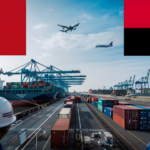
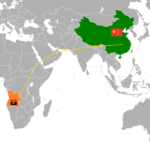






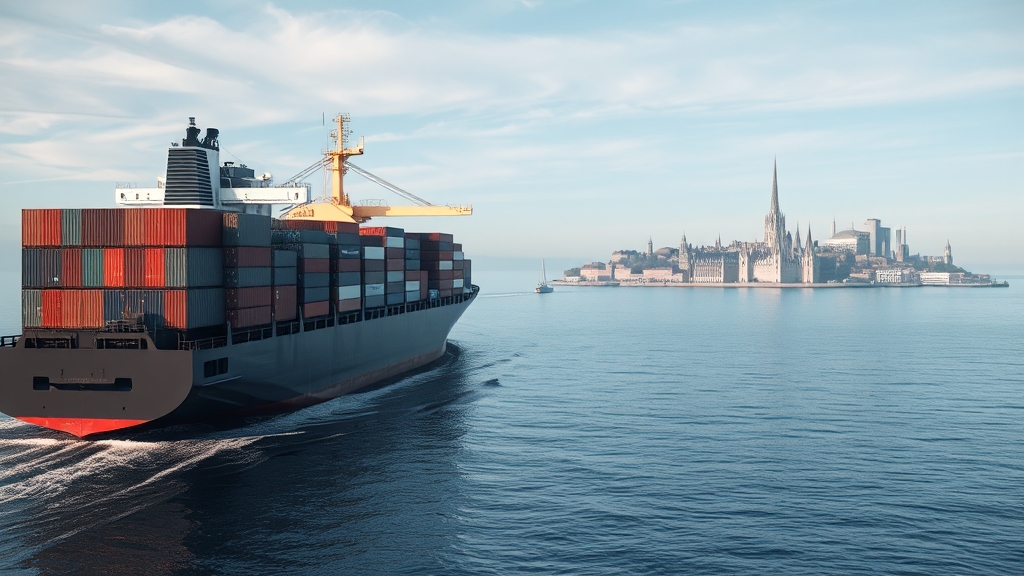
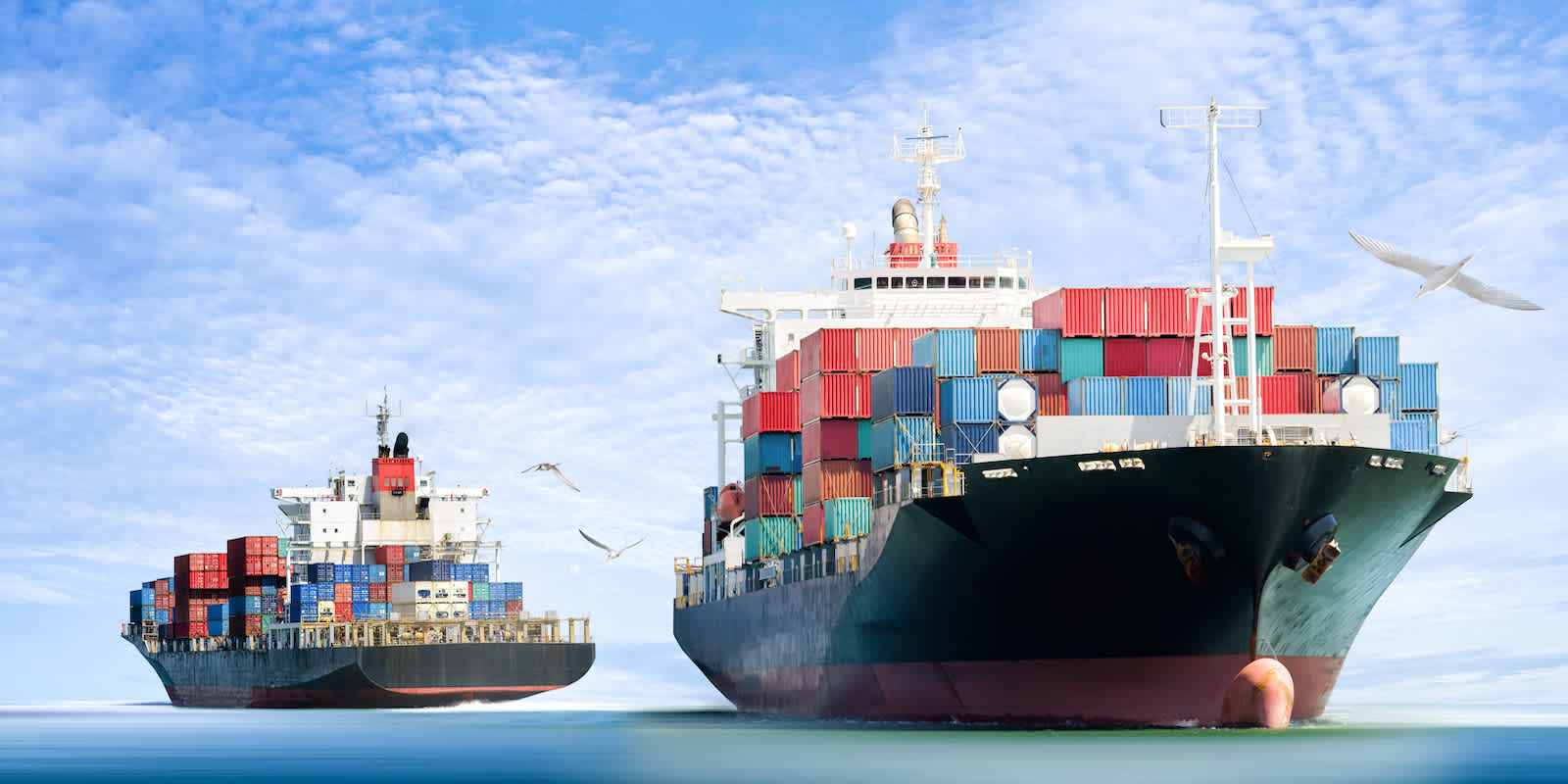
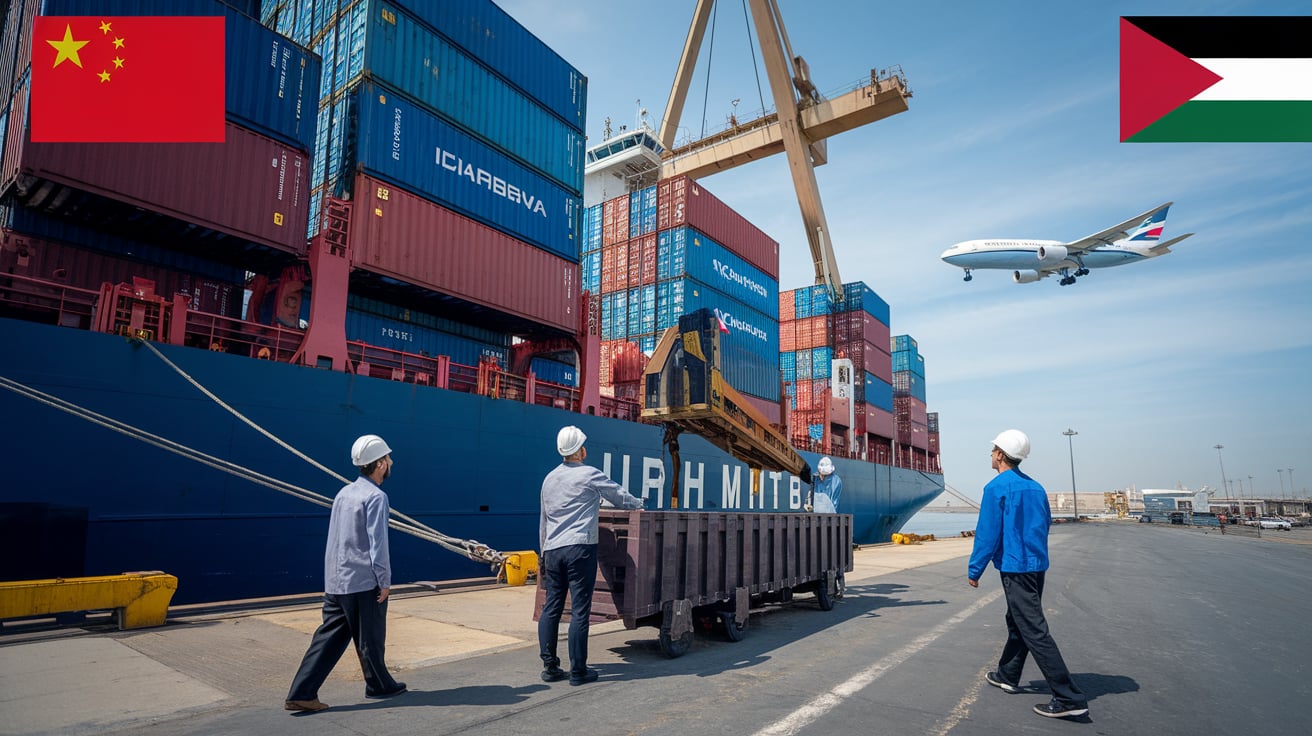
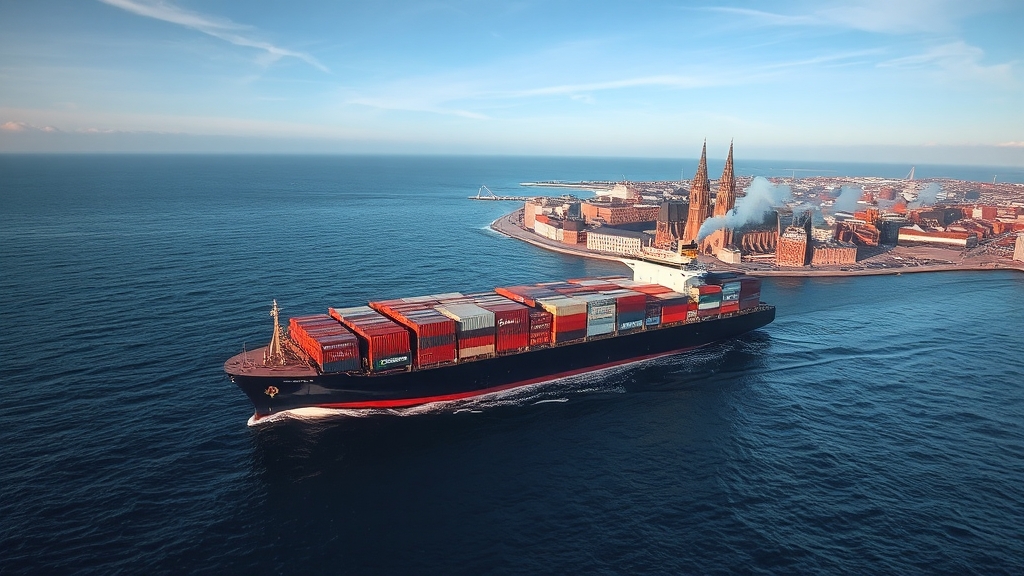
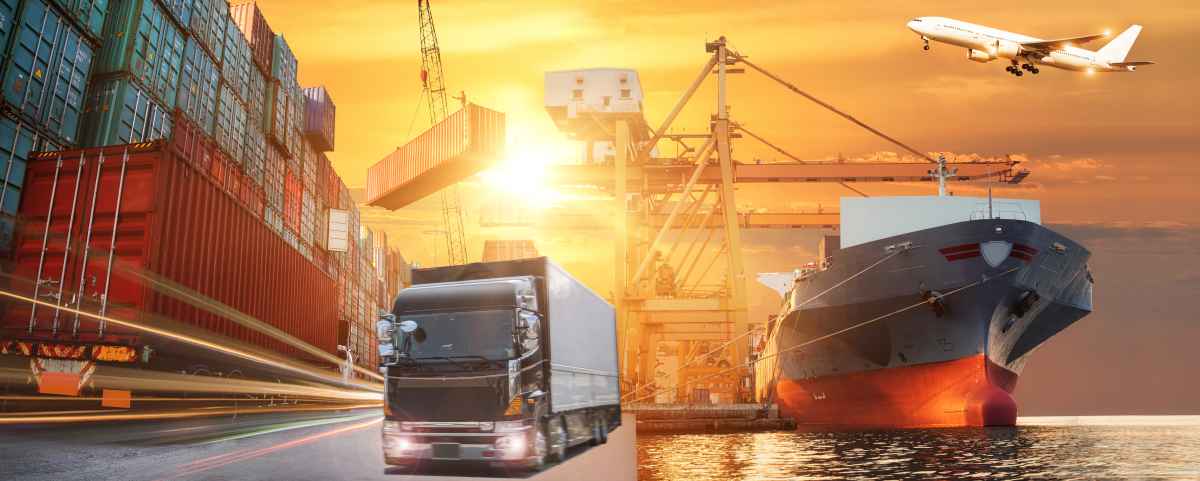





 Afrikaans
Afrikaans Shqip
Shqip አማርኛ
አማርኛ العربية
العربية Հայերեն
Հայերեն Azərbaycan dili
Azərbaycan dili Euskara
Euskara Беларуская мова
Беларуская мова বাংলা
বাংলা Bosanski
Bosanski Български
Български Català
Català Cebuano
Cebuano Chichewa
Chichewa 简体中文
简体中文 繁體中文
繁體中文 Corsu
Corsu Hrvatski
Hrvatski Čeština
Čeština Dansk
Dansk Nederlands
Nederlands English
English Esperanto
Esperanto Eesti
Eesti Filipino
Filipino Suomi
Suomi Français
Français Galego
Galego ქართული
ქართული Deutsch
Deutsch Ελληνικά
Ελληνικά Kreyol ayisyen
Kreyol ayisyen Harshen Hausa
Harshen Hausa Ōlelo Hawaiʻi
Ōlelo Hawaiʻi עִבְרִית
עִבְרִית हिन्दी
हिन्दी Hmong
Hmong Magyar
Magyar Íslenska
Íslenska Igbo
Igbo Bahasa Indonesia
Bahasa Indonesia Gaeilge
Gaeilge Italiano
Italiano 日本語
日本語 Basa Jawa
Basa Jawa ಕನ್ನಡ
ಕನ್ನಡ Қазақ тілі
Қазақ тілі ភាសាខ្មែរ
ភាសាខ្មែរ 한국어
한국어 كوردی
كوردی Кыргызча
Кыргызча ພາສາລາວ
ພາສາລາວ Latin
Latin Latviešu valoda
Latviešu valoda Lietuvių kalba
Lietuvių kalba Lëtzebuergesch
Lëtzebuergesch Македонски јазик
Македонски јазик Malagasy
Malagasy Bahasa Melayu
Bahasa Melayu മലയാളം
മലയാളം Maltese
Maltese Te Reo Māori
Te Reo Māori मराठी
मराठी Монгол
Монгол ဗမာစာ
ဗမာစာ नेपाली
नेपाली Norsk bokmål
Norsk bokmål پښتو
پښتو فارسی
فارسی Polski
Polski Português
Português ਪੰਜਾਬੀ
ਪੰਜਾਬੀ Română
Română Русский
Русский Samoan
Samoan Gàidhlig
Gàidhlig Српски језик
Српски језик Sesotho
Sesotho Shona
Shona سنڌي
سنڌي සිංහල
සිංහල Slovenčina
Slovenčina Slovenščina
Slovenščina Afsoomaali
Afsoomaali Español
Español Basa Sunda
Basa Sunda Kiswahili
Kiswahili Svenska
Svenska Тоҷикӣ
Тоҷикӣ தமிழ்
தமிழ் తెలుగు
తెలుగు ไทย
ไทย Türkçe
Türkçe Українська
Українська اردو
اردو O‘zbekcha
O‘zbekcha Tiếng Việt
Tiếng Việt Cymraeg
Cymraeg יידיש
יידיש Yorùbá
Yorùbá Zulu
Zulu